TV
Dutch broadcaster launches news bulletin in easy-to-understand language | Netherlands
The Dutch public broadcaster NOS has launched an evening news programme using “easy language” aimed at 2.5 million people in the Netherlands who struggle with the language.
English speakers may joke about “double Dutch”, but foreigners are not the only ones who sometimes fail to comprehend the west Germanic language of long words, convoluted sentences and guttural sounds.
The Netherlands audit office calculated in 2016 that one in seven people in the the country struggles with literacy and numeracy, and language skills among teenagers have plummeted. The 5pm NOS Journaal in Makkelijke Taal (news bulletin in easy language) is aimed at older people, non-native speakers, and those with learning problems or disrupted education.
Onno Duyvené de Wit, a spokesperson for NOS, said: “This is not just about newcomers to the Netherlands but also people who were born here and for one reason or another missed the boat with language. We have the legal task of making news, sport and national and international events available to all of the residents of the Netherlands, and this is part of it.”
The broadcaster has been experimenting with simple, weekly round-ups on YouTube, developed with the literacy charity Stichting Lezen en Schrijven. Its daily service will have fewer images, simpler sentence structure, easier language and fewer topics, explained at a slower tempo. Interviewers will also encourage people to avoid jargon.
The Netherlands did not have a “plain” language movement like the UK in the 1970s and 1980s, but there is increasing recognition that institutions have a duty to communicate clearly. A government study in 2021 found that 62% of local government communication was impossible to read for people with a lower level of education. Since then, a “straight-talking brigade” of language coaches has attempted to train civil servants in clear communication. The Dutch tax office is trying to write simpler letters and public information was also produced in “simple” language during the pandemic.
Jan-Willem Heijkoop, a spokesperson for Stichting Lezen en Schrijven, said there was still a long way to go. “For those 2.5 million adults, it is just too difficult to understand information from municipalities, hospitals, housing corporations, but also primary schools, if they have children,” he said. “We have also become very complex in our language: if you write, ‘that’s what we do’, then the reader knows someone is going to do something. But if you write ‘that’s how things are done’, it’s much more tricky to understand. It all makes it very difficult for a lot of people to function in our society.”
Sonja Verbaarschott, editor of the Jeugdjournaal, said many adult Dutch learners watch its youth news programme as a way to improve their skills. “We know that many people who have come to the Netherlands and learn Dutch as a second language are recommended to watch, although we don’t have hard figures,” she said.
Dr Mark Boukes, an expert in journalism at the University of Amsterdam, said typical adult television news in the Netherlands is fast-moving and assumes background knowledge, while consumers are often multitasking too.
after newsletter promotion
“Most journalists are highly educated themselves and in that regard it’s good that they take a step back and think: how can we make this easier and more digestible for an audience that is not used to consuming news programmes?” he said. “From a democratic perspective, it’s good that more people have access.”
TV
David Graham death: Peppa Pig and Thunderbirds voice actor dies aged 99
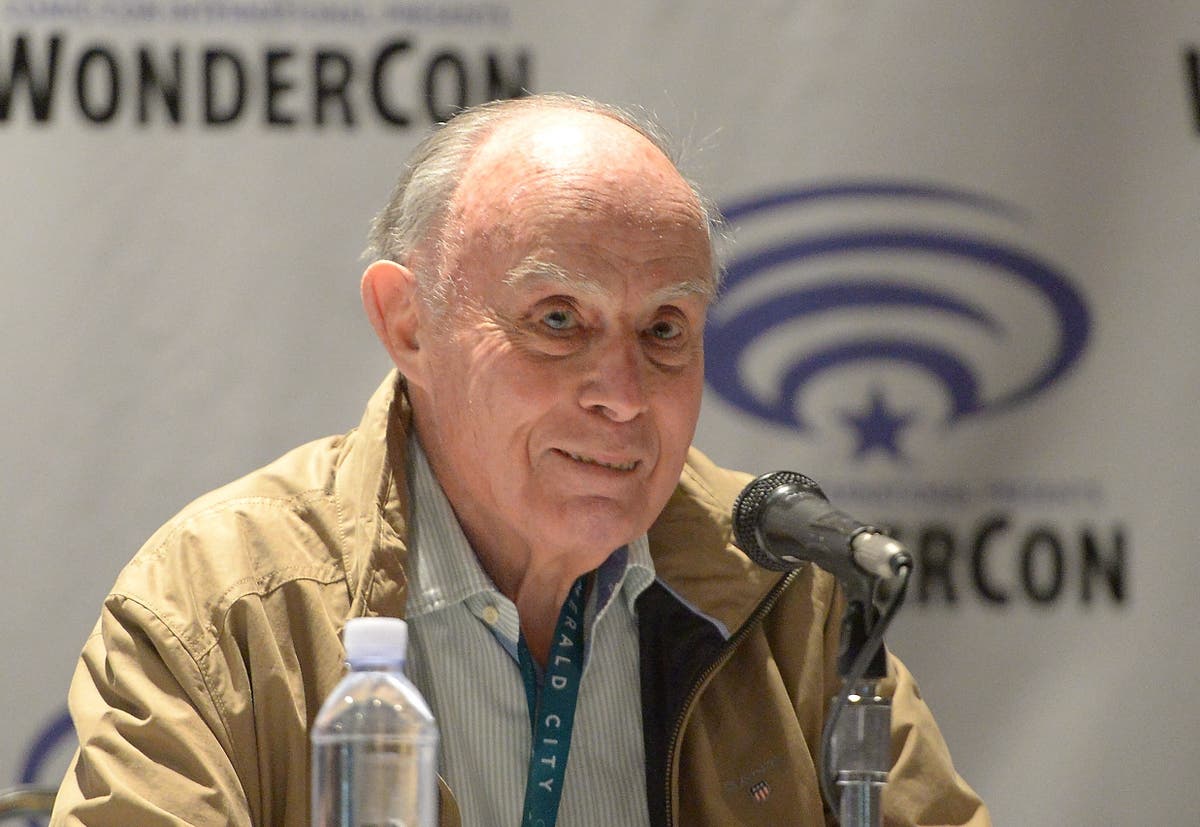
Actor David Graham, best known for lending his voice to characters in British TV series including Peppa Pig, Doctor Who and Thunderbirds, has died at the age of 99.
On Doctor Who, Graham voiced the evil Daleks in the 1960s and the 1970s. He also served as the voice of the butler and chauffer Aloysius Parker in Thunderbirds in the 1960s as well as its movie sequels.
However, to today’s generation of children, he’s perhaps best known for voicing Grandpa Pig in the animated series Peppa Pig. Grandpa Pig, also referred to as “Papa Ig” by his grandson George, is married to Grandma Pig and is the father of Mummy Pig and Aunt Dottie.
“We’re incredibly sad to confirm the passing of the legendary David Graham,” reads a post shared on Thunderbirds creator Gerry Anderson’s X account.
“The voice [of] Parker, Gordon Tracy, Brains and so many more. David was always a wonderful friend to us here at Anderson Entertainment. We will miss you dearly, David. Our thoughts are with David’s friends and family.”
Anderson’s son, director and producer Jamie Anderson, remembered Graham as “a great actor, iconic voice, and all round lovely man.” “We’ll all miss him very much,” he tweeted.
Born in 1925 in London, the British voice actor served in the Royal Air Force as a radar mechanic during World War II.
Following his service, he moved to the US, where he trained at New York’s Neighborhood Playhouse School of the Theatre.
Graham later returned to the UK, where he began his acting career on stage.

“At school I always wanted to say the poem or read the story. I always wanted to act,” he told The Mirror in 2015.

Watch Apple TV+ free for 7 days
New subscribers only. £8.99/mo. after free trial. Plan auto-renews until cancelled

Watch Apple TV+ free for 7 days
New subscribers only. £8.99/mo. after free trial. Plan auto-renews until cancelled
He landed his first on-screen credit in the 1952 TV movie Portrait of Peter Perowne.
Besides Thunderbirds and Doctor Who, Graham also voiced notable characters in numerous Sixties shows, such as Supercar, Sarah and Hoppity, Fireball XL5 and Stingray.
In 2021, Graham announced he was retiring from Thunderbirds. Early the next year, it was reported that he was “housebound” after suffering a stroke six months prior.
Fellow Doctor Who star George Layton shared at the time that Graham was “making a great recovery doing voice work from home.”
Graham’s final projects included voicing Zeke in the children’s animated series Toca Life Stories and voicing Grandpa Pig in several Peppa Pig video games.
TV
How to open YouTube on a Samsung Smart TV
TV
‘It’s a very tough time in Hollywood’: inside the shrinking world of the TV writers’ room | US television
When a powerful earthquake struck near Los Angeles last month, it was a neat metaphor for a Hollywood film industry shaken in recent years by a streaming revolution, Covid pandemic, racial reckoning and crippling strikes. And nowhere are the aftershocks felt more keenly than in the writers’ room.
These are collaborative spaces where writers come together to brainstorm ideas, debate plot twists, bounce jokes off each other and punch up scripts so they are ready for production. The formula has produced TV greats from The Dick Van Dyke Show to Saturday Night Live, from The Simpsons to The Sopranos.
In the era when networks would commission a season of 22 episodes of a sitcom or drama, these rooms would often boast a dozen or more writers (dominated by white men) who would also assist on set if the actors needed guidance during filming – an exposure that many say was invaluable.
The rooms were precious training grounds for young writers to cut their teeth and build a network of contacts. But that was then. Today, with the rise of streaming platforms such as Netflix, studios increasingly rely on so-called mini-rooms with just four or five writers to create shows, often with fewer episodes.
“In most cases the writers’ rooms today are very different from 10 or 20 years ago,” says Matthew Belloni, an entertainment lawyer and former editor of the Hollywood Reporter. “Most shows have far fewer episodes. The days of 22-episode network sitcoms and dramas are mostly gone, with exceptions, and consequently the number of writers in a writers’ room is typically much fewer than it was. Now, there are more shows than there were back then but the number of shows is coming down from the peak of three or four years ago.”
These factors – and the rise of artificial intelligence (AI) – were bones of contention during last year’s writers’ strike, which at 148 days was one of the longest in Hollywood history, compounded by actors downing tools at the same time.
The Writers Guild of America (WGA), which did not respond to requests for comment for this article, fought to preserve the writers’ room as an inherently valuable concept. At one point this prompted a retort from the studios: “If writing needs to be done, writers are hired, but these proposals require the employment of writers whether they’re needed for the creative process or not.”
The studios proposed that writers’ rooms should have a minimum of just three writers including the showrunner. The union managed to fend this off and reach an agreement that shows intended to run at least 13 episodes will have at least six writers on staff, with numbers shifting based on the number of episodes. Staff on shows in initial development will be employed for at least 10 weeks, while staff on shows that go to air will be employed for three weeks per episode.
Anton Schettini, 35, who has worked in 14 TV writers’ rooms and is the author of Breaking into TV Writing, says: “Because streamers have shorter seasons, writers’ rooms last a shorter amount of time. There’s fewer episodes – something like six to 10 – on streamers, whereas networks would do 22 or, in the days of cable, there would be like a 12-episode season.
“Your time working in a writers’ room has certainly shortened and we have seen up until the strike the writers’ room getting smaller and smaller, which is why the WGA fought for a minimum in the negotiation, which was implemented.”
The three-year contract also secured an increase in pay and future residual earnings of between 3.5% and 5%. That was a boost for those who can get work. But for many writers who endured the strike in the hope that good times were just around the corner, conditions remain brutal.
In a May article headlined “The Daily Terror of Being a TV Writer Right Now”, Gideon Yago, whose credits include The Newsroom and The Mosquito Coast, told Vanity Fair: “I just don’t sleep. These last couple of months have been the hardest. I haven’t had a single conversation with anyone in the industry that hasn’t expressed fear and frustration. That’s really, really bad when you’re in the enchantment and entertainment business.”
A screenwriter, who has worked on several high-profile shows and wishes to remain anonymous, tells the Guardian that some of his former co-workers are no longer getting hired. “These are people who are not breaking in – they worked on the same shows that I did right before,” he says in a phone interview.
“Now they’re saying, ‘We’re not getting any work. Our agents and managers are saying staffing is tricky out there.’ Partly it’s because the strike brought us a lot of benefits – salaries have increased, mini-rooms are much better paid than before – and as a result of that there are fewer of them.”
Despite the reduced episode count, writers argue that the workload remains just as arduous and, with shorter employment periods, they must constantly be on the lookout for the next opportunity to earn a living wage in Los Angeles. The current climate is forcing them to make difficult decisions.
The writer adds: “There are people I know that have been in the industry for a long time and they used to say, ‘I only work on the east coast, I’m not going to travel to LA,’ or, ‘I prefer Zoom because I’m a full-time single parent.’ But now they’re saying: ‘I need the money so if I have to pack up my kids and family full-time for 20 weeks with potential hiatuses built in, I guess that’s what I have to do’.”
Virtual writers’ room sprang up during the pandemic, although there studios are pushing for a full return in person. The screenwriter adds: “Remote work is dwindling a bit. It became very popular during the pandemic. People were used to rooms fully virtual but now things are starting to go back to normal.”
The writers’ strike began five months after OpenAI released its AI tool ChatGPT. The new agreement stipulates that scripts must be written by humans, not AI. Studios and production companies are obliged disclose to writers if any material given to them has been generated by AI in full or partly.
In addition, AI-generated storylines will not be regarded as “literary material” – a term in their contracts for scripts and other story forms a screenwriter produces – so writers will not have to compete with AI for screen credits. The companies are not barred from using AI to generate content but writers have the right to sue if their work is used to train AI.
For now, studios seem content to let writers do the work rather than spending more money on AI. The anonymous screenwriter comments: “Last year AI was the conversation of the moment: ‘Hmm, could we come up with a bit of content or an outline or treatment without hiring writers?’
“But once a room is fully up and running and you have access to all these creatives no one is going to look outside for additional AI content. Most people are like, well, we pay you guys, so come up with this on your own.”
He gave the example of fake newspapers or the fake crawls that run across the screen on a cable news channel on a TV in the background of a scene. “That’s something you’d think people would pay to use AI to generate but we write it manually.
“In the morning you’re like, let’s write the crawls that are coming on this fake CNN report that’s on the TV in the background. In that sense that’s been encouraging. All writers respect the process enough that it’s not part of the conversation; it’s not something you default to.”
Another upheaval for writers’ rooms over the past five years have been the racial reckoning that followed Black Lives Matter protests over the police murder of George Floyd, an African American man, in Minneapolis in 2020. Most studios have diverse writer programmes and some actively mandate that each writers’ room has a diverse element.
The unnamed screenwriter, who is Black, comments: “It adds a safety to my career in that there is an element of, if we have an all-male or all-white writer’s room, showrunners will feel the need to add some diversity. It’s crass to say they’ll pick from a pile but they will seek to rectify that.
“I do think, though, that role is limited. Some former colleagues say, ‘It’s easier if you’re a person of colour to get hired right now.’ I always bristle against that because there’s only one in my room and it is me. I know other writers of colour who are in rooms of two writers of colour so it feels like a checkbox that, once it is checked, people don’t look beyond that to fulfill that need.
“To me it feels like I’m not taking a spot that would go to other people; I’m competing with a lot of people who look like me to fill the only spot and, once that spot is filled, diversity has been ‘met’.”
Writers suffered financially even when streaming was booming as studios tried to compete with Netflix and, adopting a Silicon Valley mindset, prioritised subscriber growth and hoped profits would follow. The result was content saturation, with some expensive shows barely watched or even left on the shelf.
Studios have been grasping for a sustainable business model and writers now face even greater hardship as they scale down and consolidate. Earlier this month Paramount shut down its television studio as part of a cost-cutting measure to save half a billion dollars.
Belloni, the entertainment lawyer who is a founding partner of the website Puck, says: “When Netflix became the dominant streaming service all of the legacy media companies bolted out to try and compete. Now they are pulling back because they spent so much money and their investors are asking for profit, not subscriber growth necessarily.”
He concludes: “It’s a very tough time in Hollywood. The pullback in content and the bursting of the TV bubble has led to fewer jobs, more competition and tougher negotiating positions for these writers. All of it means it’s tougher than ever to be a working professional screenwriter.”
TV
🔴 LIVE | TV9 KANNADA NEWS | ಟಿವಿ9 ಕನ್ನಡ ನ್ಯೂಸ್ ಲೈವ್ |TV9 KANNADA LIVE NEWS | DARSHAN CHARGESHEET

#tv9kannada #DarshanArrested #ChallengingStarDarshan #RenukaswamyDeathCase #PavithraGowda #loksabhaelection2024 #olympics #wayanad #siddaramaiah #mudasitescam
TV9 Kannada live is a 24-hours Kannada news channel. TV9 established its image as one of India’s most-watched and credible regional news channels worldwide. It is the most preferred Kannada news channel for Live Updates, Breaking News, Political News, Crime, Entertainment News and Film news, Sandalwood, Sports News, Sting Operations.
TV9’s popular shows revolve around: State Politics, Indian Politics, Economy, Sports, Films, Business, Social Cause, Satirical Comedies and Panel Discussions with eminent personalities.
Watch TV9 Kannada live news on YouTube – the most trusted and subscribed channel. Please click on the Subscribe button and the bell icon to get live updates.
TV9 KANNADA LIVE NEWS | ಟಿವಿ9 ಕನ್ನಡ ನ್ಯೂಸ್ ಲೈವ್ | KARNATAKA LIVE NEWS | KANNADA NEWS LIVE | TV9 LIVE
► TV9 Kannada Website: https://tv9kannada.com
► Subscribe to Tv9 Kannada: https://youtube.com/tv9kannada
► Like us on Facebook: https://www.facebook.com/tv9kannada
► Follow us on Twitter: https://twitter.com/tv9kannada
► Download TV9 Kannada Android App: https://goo.gl/OM6nPA
► Download TV9 Kannada IOS App: https://goo.gl/OM6nPA
► Follow us on Instagram: https://www.instagram.com/tv9_kannada_official
► Join us on Telegram: https://t.me/tv9kannadaofficial
► Follow us on Pinterest: https://www.pinterest.com/tv9karnataka
#tv9kannada #biggbosskannada #tv9kannadanews #karnataka #karnatakagovernment #siddaramaiah #cmofkarnataka #kannadanews #karnatakanews
#tv9kannada#tv9kannadanewslive #tv9kannadanews #kannadanewslive #KarnatakaNews #KannadaNews #TV9Kannada #tv9kannadanewslive #tv9kannadanews #kannadanewslive #KarnatakaNews #KannadaNews
Karnataka News | Kannada News | Tv9 Kannada | Tv9 Kannada News | Kannada News | Latest Kannada News | TV9 KANNADA NEWS LIVE | ಟಿವಿ9 ಕನ್ನಡ ನ್ಯೂಸ್ ಲೈವ್ | KANNADA LIVE NEWS | KANNADA TV NEWS | KARNATAKA LIVE NEWS
#tv9kannadanews #KannadaNews #BreakingNews #BreakingNewsinKannada #KannadaLiveTv #KannadaNewsLive #KarnatakaNewsLive #KannadaNewsChannel #LiveNews #LatestNews #KarnatakaNews #KarnatakaLatestNews #KannadaLatestNews #NewsinKannada #KannadaNewsToday #KannadaNewsHeadlines #OnlineNewsKannada #NewsHeadlines
TV9 Kannada News, Kannada News, Breaking News, Breaking News in Kannada, Kannada Live Tv, Kannada News Live, Karnataka News Live, Kannada News Channel, Live News, Latest News, Karnataka News, Karnataka Latest News, Kannada Latest News, News in Kannada, Kannada News Today, Kannada News Headlines, Online News Kannada, News Headlines
source
TV
Jimmy Kimmel heckles Trump over crowd sizes and ‘tiny baby hands’

Jimmy Kimmel has ridiculed Donald Trump over his obsession with crowd sizes.
During his latest rally in Uniondale, Long Island, the former president boasted that he draws bigger crowds than Elvis Presley.
“So I call up my wife, and I’d say, ‘Baby, who can draw crowds like me’,” Trump told attendees. “Nobody, nobody can. I’m the greatest of all time, maybe greater even than Elivs. Elvis had a guitar. I don’t have the privilege of a guitar.”
Finishing Trump’s thought on the latest episode of Jimmy Kimmel Live!, the late-night host joked: “Thanks to my tiny baby hands, I am unable to play the guitar.”
Kimmel continued: “As ‘disgraceland’ was boasting about having bigger crowds than Elvis, people started getting bored and leaving the arena.”
Showing footage of a half-emptied arena, he noted: “This is how his big rally wrapped up in Uniondale. Elvis hadn’t left the building, but half the crowd had.”
Despite the footage, police estimated that 50,000 people showed up for the rally, which took place following the second attempt on his life last weekend, according to local New York news station PIX 11. It marked one of Trump’s largest rallies of his re-election campaign.
Trump has become increasingly consumed with the size of his campaign rally crowds.
Last month, he falsely declared that attendance at his rally on January 6, 2021 – prior to the attack on the Capitol – rivaled the size of the crowd that Martin Luther King Jr drew to watch his “I have a dream” speech in August 1963.
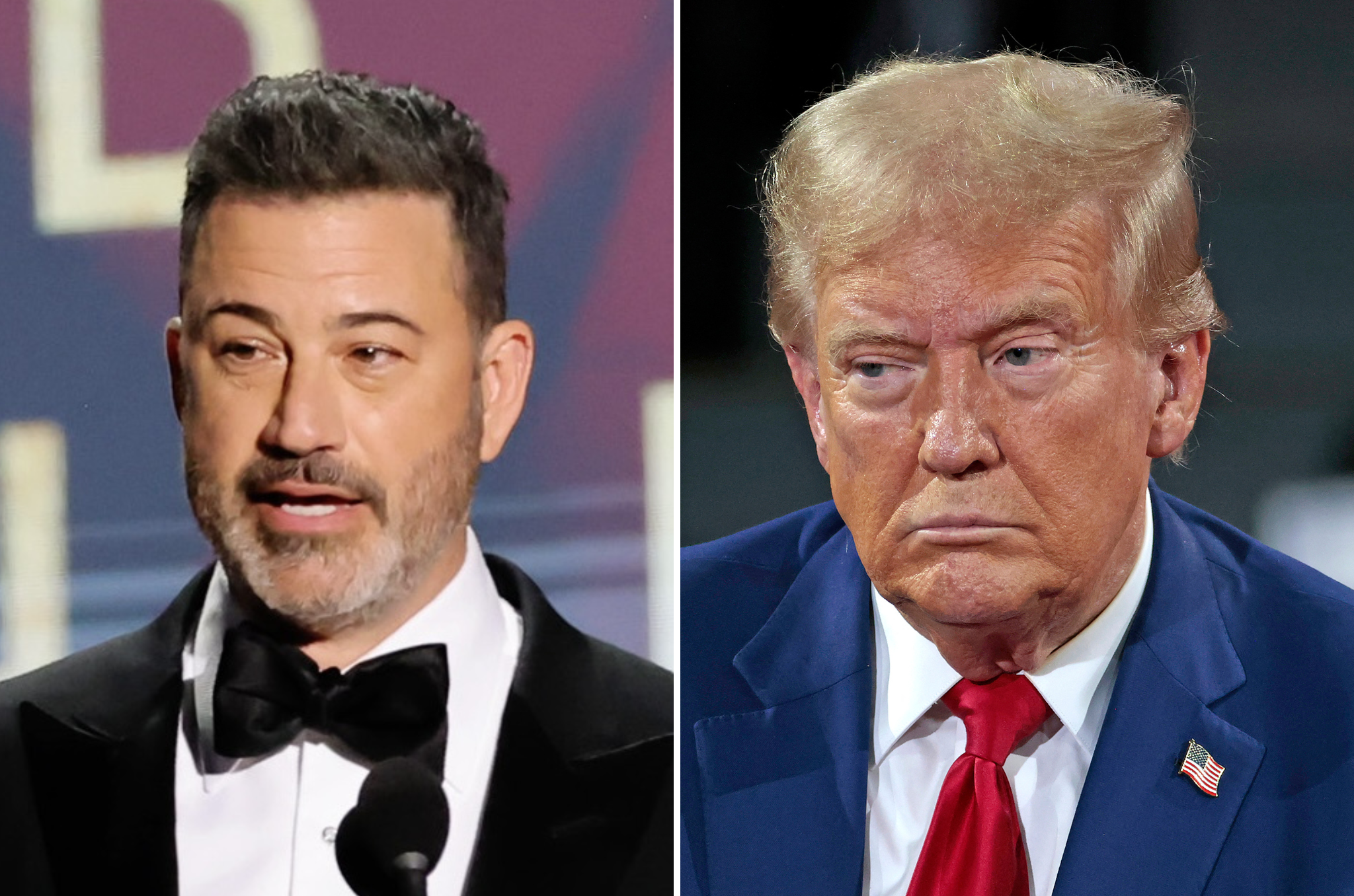
Vice President Kamala Harris capitalized on Trump’s obsession during their first presidential debate, baiting him into responding to her claim that his supporters leave rallies early out of “exhaustion and boredom.”
“People don’t leave my rallies,” Trump fired back. “We have the biggest rallies, the most incredible rallies in the history of politics.”

Watch Apple TV+ free for 7 days
New subscribers only. £8.99/mo. after free trial. Plan auto-renews until cancelled

Watch Apple TV+ free for 7 days
New subscribers only. £8.99/mo. after free trial. Plan auto-renews until cancelled
Kimmel also played a clip of Trump’s recent interview on Fox News, in which he complained that the ABC debate moderators fact-checked “everything I said.”
“And the audience, they went crazy,” Trump claimed, with Kimmel interrupting to state that “there was no audience.”
“The debate was held in an empty room. There was no audience. I mean, is he losing his mind, or does he lie so automatically he doesn’t even know it anymore,” the comedian added. “At least in the past, when he exaggerated the size of the crowd, there was a crowd.”
TV
YouTube TV: Nothing but Net
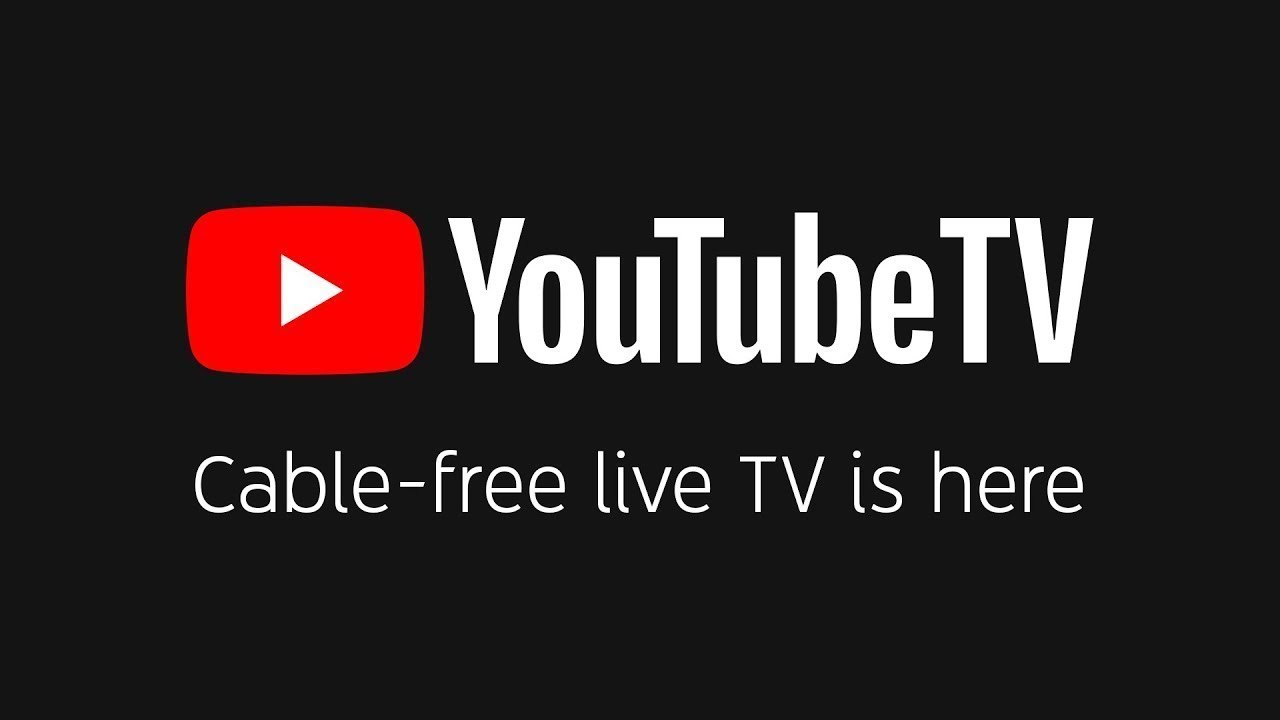
Introducing YouTube TV.
Finally, cable-free live TV. Try it free here: https://tv.youtube.com
YouTube TV is a TV streaming service that lets you watch live TV from ABC, CBS, FOX, NBC, and popular cable networks. Enjoy local and national live sports, and must-see shows the moment they air. Record all your favorites without DVR storage space limits, and stream wherever you go. YouTube TV comes with 6 accounts per household.
YouTube TV is currently available in select U.S. cities, with more coming soon! Learn where we’re launched here: https://tv.youtube.com/tv/availability.
Learn about NFL Sunday Ticket: https://tv.youtube.com/learn/nflsundayticket
source
-

 Sport1 day ago
Sport1 day agoJoshua vs Dubois: Chris Eubank Jr says ‘AJ’ could beat Tyson Fury and any other heavyweight in the world
-

 News2 days ago
News2 days agoYou’re a Hypocrite, And So Am I
-

 Science & Environment1 day ago
Science & Environment1 day ago‘Running of the bulls’ festival crowds move like charged particles
-

 News1 day ago
News1 day agoIsrael strikes Lebanese targets as Hizbollah chief warns of ‘red lines’ crossed
-

 Science & Environment1 day ago
Science & Environment1 day agoQuantum ‘supersolid’ matter stirred using magnets
-

 CryptoCurrency1 day ago
CryptoCurrency1 day agoEthereum is a 'contrarian bet' into 2025, says Bitwise exec
-

 Science & Environment2 days ago
Science & Environment2 days agoSunlight-trapping device can generate temperatures over 1000°C
-

 CryptoCurrency1 day ago
CryptoCurrency1 day agoBitcoin miners steamrolled after electricity thefts, exchange ‘closure’ scam: Asia Express
-

 CryptoCurrency1 day ago
CryptoCurrency1 day agoCardano founder to meet Argentina president Javier Milei
-

 CryptoCurrency1 day ago
CryptoCurrency1 day agoDorsey’s ‘marketplace of algorithms’ could fix social media… so why hasn’t it?
-

 CryptoCurrency1 day ago
CryptoCurrency1 day agoLow users, sex predators kill Korean metaverses, 3AC sues Terra: Asia Express
-

 Sport1 day ago
Sport1 day agoUFC Edmonton fight card revealed, including Brandon Moreno vs. Amir Albazi headliner
-

 Technology1 day ago
Technology1 day agoiPhone 15 Pro Max Camera Review: Depth and Reach
-

 Science & Environment1 day ago
Science & Environment1 day agoHow one theory ties together everything we know about the universe
-

 Science & Environment2 days ago
Science & Environment2 days agoHow to unsnarl a tangle of threads, according to physics
-

 Science & Environment2 days ago
Science & Environment2 days agoHow to wrap your mind around the real multiverse
-

 Science & Environment2 days ago
Science & Environment2 days agoNuclear fusion experiment overcomes two key operating hurdles
-

 CryptoCurrency1 day ago
CryptoCurrency1 day agoCertiK Ventures discloses $45M investment plan to boost Web3
-

 CryptoCurrency1 day ago
CryptoCurrency1 day agoDZ Bank partners with Boerse Stuttgart for crypto trading
-

 CryptoCurrency1 day ago
CryptoCurrency1 day agoRedStone integrates first oracle price feeds on TON blockchain
-

 CryptoCurrency1 day ago
CryptoCurrency1 day agoBitcoin bulls target $64K BTC price hurdle as US stocks eye new record
-

 CryptoCurrency1 day ago
CryptoCurrency1 day agoSEC asks court for four months to produce documents for Coinbase
-

 CryptoCurrency1 day ago
CryptoCurrency1 day ago‘No matter how bad it gets, there’s a lot going on with NFTs’: 24 Hours of Art, NFT Creator
-

 CryptoCurrency1 day ago
CryptoCurrency1 day agoBlockdaemon mulls 2026 IPO: Report
-

 CryptoCurrency1 day ago
CryptoCurrency1 day agoCoinbase’s cbBTC surges to third-largest wrapped BTC token in just one week
-

 Politics3 days ago
Politics3 days agoTrump says he will meet with Indian Prime Minister Narendra Modi next week
-

 Science & Environment2 days ago
Science & Environment2 days agoWhy this is a golden age for life to thrive across the universe
-

 Science & Environment1 day ago
Science & Environment1 day agoHyperelastic gel is one of the stretchiest materials known to science
-

 Politics1 day ago
Politics1 day agoLabour MP urges UK government to nationalise Grangemouth refinery
-

 Science & Environment2 days ago
Science & Environment2 days agoMaxwell’s demon charges quantum batteries inside of a quantum computer
-

 News1 day ago
News1 day agoBrian Tyree Henry on voicing young Megatron, his love for villain roles
-

 Technology3 days ago
Technology3 days agoWould-be reality TV contestants ‘not looking real’
-

 Science & Environment2 days ago
Science & Environment2 days agoQuantum time travel: The experiment to ‘send a particle into the past’
-

 Science & Environment2 days ago
Science & Environment2 days agoPhysicists are grappling with their own reproducibility crisis
-

 CryptoCurrency1 day ago
CryptoCurrency1 day ago2 auditors miss $27M Penpie flaw, Pythia’s ‘claim rewards’ bug: Crypto-Sec
-

 CryptoCurrency1 day ago
CryptoCurrency1 day ago$12.1M fraud suspect with ‘new face’ arrested, crypto scam boiler rooms busted: Asia Express
-

 CryptoCurrency1 day ago
CryptoCurrency1 day ago‘Everything feels like it’s going to shit’: Peter McCormack reveals new podcast
-

 Science & Environment1 day ago
Science & Environment1 day agoUK spurns European invitation to join ITER nuclear fusion project
-

 Science & Environment1 day ago
Science & Environment1 day agoA tale of two mysteries: ghostly neutrinos and the proton decay puzzle
-

 CryptoCurrency1 day ago
CryptoCurrency1 day agoDecentraland X account hacked, phishing scam targets MANA airdrop
-

 CryptoCurrency1 day ago
CryptoCurrency1 day agoCZ and Binance face new lawsuit, RFK Jr suspends campaign, and more: Hodler’s Digest Aug. 18 – 24
-

 CryptoCurrency1 day ago
CryptoCurrency1 day agoBeat crypto airdrop bots, Illuvium’s new features coming, PGA Tour Rise: Web3 Gamer
-

 CryptoCurrency1 day ago
CryptoCurrency1 day agoMemecoins not the ‘right move’ for celebs, but DApps might be — Skale Labs CMO
-

 CryptoCurrency1 day ago
CryptoCurrency1 day agoTelegram bot Banana Gun’s users drained of over $1.9M
-

 CryptoCurrency1 day ago
CryptoCurrency1 day agoVonMises bought 60 CryptoPunks in a month before the price spiked: NFT Collector
-

 CryptoCurrency1 day ago
CryptoCurrency1 day agoVitalik tells Ethereum L2s ‘Stage 1 or GTFO’ — Who makes the cut?
-

 CryptoCurrency1 day ago
CryptoCurrency1 day agoEthereum falls to new 42-month low vs. Bitcoin — Bottom or more pain ahead?
-
Business1 day ago
How Labour donor’s largesse tarnished government’s squeaky clean image
-

 News1 day ago
News1 day agoChurch same-sex split affecting bishop appointments
-

 Technology1 day ago
Technology1 day agoFivetran targets data security by adding Hybrid Deployment
-

 Science & Environment2 days ago
Science & Environment2 days agoElon Musk’s SpaceX contracted to destroy retired space station
-
News1 day ago
Freed Between the Lines: Banned Books Week
-

 MMA1 day ago
MMA1 day agoUFC’s Cory Sandhagen says Deiveson Figueiredo turned down fight offer
-

 MMA1 day ago
MMA1 day agoDiego Lopes declines Movsar Evloev’s request to step in at UFC 307
-

 Football1 day ago
Football1 day agoNiamh Charles: Chelsea defender has successful shoulder surgery
-

 Football1 day ago
Football1 day agoSlot's midfield tweak key to Liverpool victory in Milan
-
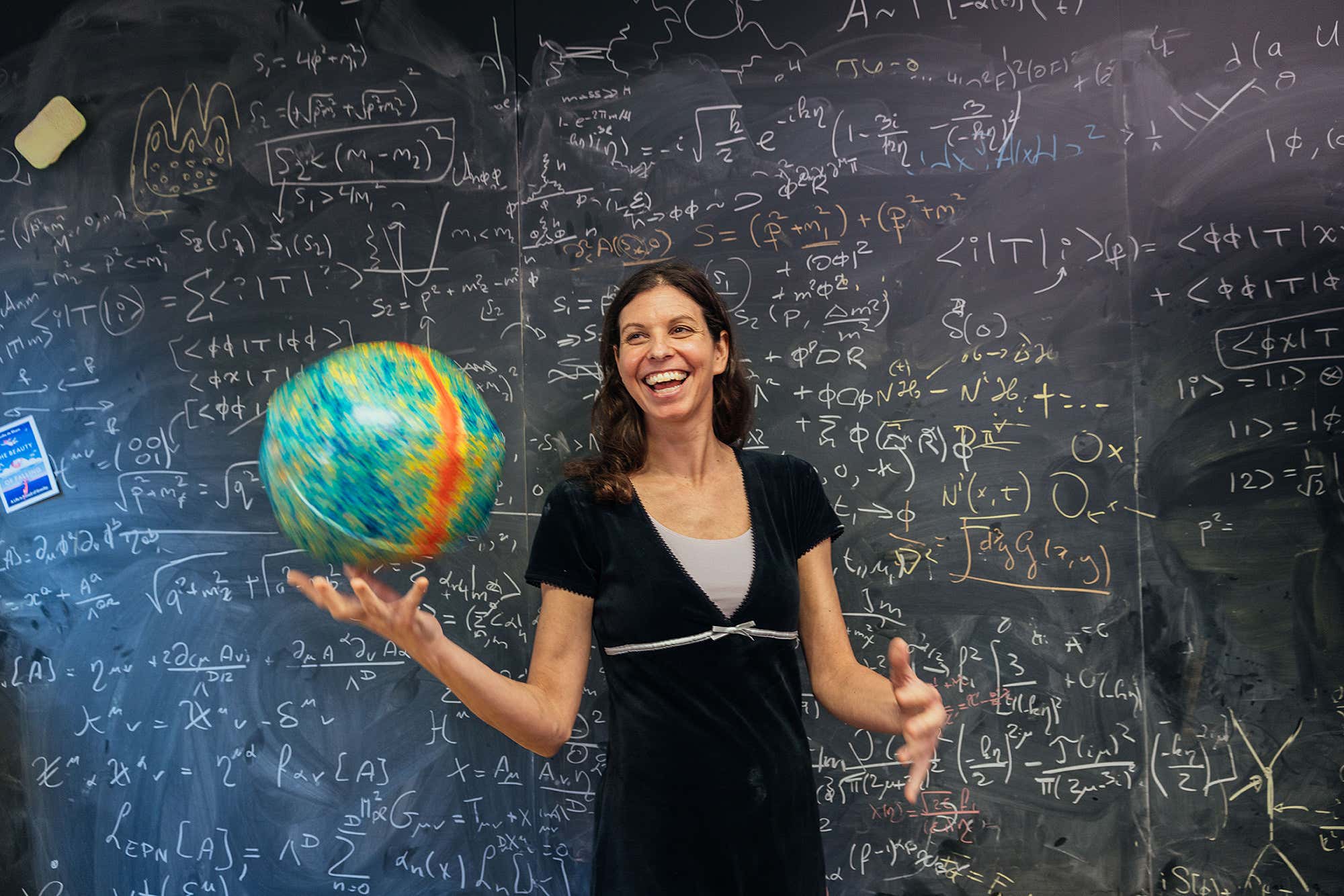
 Science & Environment1 day ago
Science & Environment1 day agoThe physicist searching for quantum gravity in gravitational rainbows
-

 Science & Environment1 day ago
Science & Environment1 day agoHow to wrap your head around the most mind-bending theories of reality
-

 Technology3 days ago
Technology3 days agoCan technology fix the ‘broken’ concert ticketing system?
-

 Fashion Models1 day ago
Fashion Models1 day agoMiranda Kerr nude
-

 Fashion Models1 day ago
Fashion Models1 day ago“Playmate of the Year” magazine covers of Playboy from 1971–1980
-

 News4 days ago
News4 days agoDid the Pandemic Break Our Brains?
-

 Science & Environment1 day ago
Science & Environment1 day agoA new kind of experiment at the Large Hadron Collider could unravel quantum reality
-

 Science & Environment1 day ago
Science & Environment1 day agoHow Peter Higgs revealed the forces that hold the universe together
-

 Science & Environment1 day ago
Science & Environment1 day agoOdd quantum property may let us chill things closer to absolute zero
-

 Science & Environment2 days ago
Science & Environment2 days agoQuantum forces used to automatically assemble tiny device
-

 Science & Environment1 day ago
Science & Environment1 day agoRethinking space and time could let us do away with dark matter
-

 Science & Environment2 days ago
Science & Environment2 days agoITER: Is the world’s biggest fusion experiment dead after new delay to 2035?
-
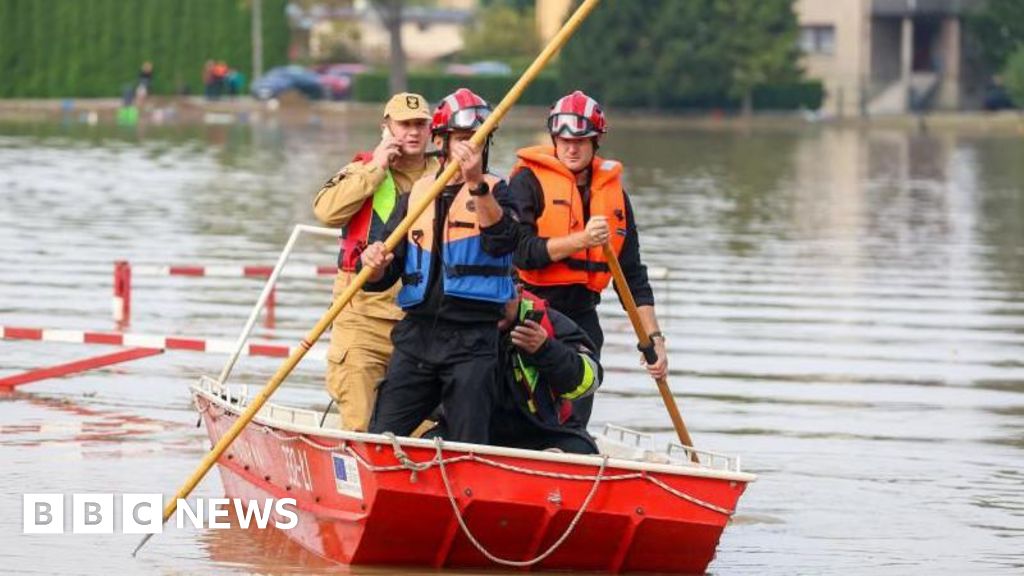
 News3 days ago
News3 days agoItaly braces for rain as 21 killed in Europe floods
-
Business3 days ago
Glasgow to host scaled-back Commonwealth Games in 2026
-

 Science & Environment2 days ago
Science & Environment2 days agoLiquid crystals could improve quantum communication devices
-

 Science & Environment2 days ago
Science & Environment2 days agoX-ray laser fires most powerful pulse ever recorded
-

 Science & Environment2 days ago
Science & Environment2 days agoBeing in two places at once could make a quantum battery charge faster
-

 Science & Environment1 day ago
Science & Environment1 day agoWe may have spotted a parallel universe going backwards in time
-

 CryptoCurrency1 day ago
CryptoCurrency1 day agoArthur Hayes’ ‘sub $50K’ Bitcoin call, Mt. Gox CEO’s new exchange, and more: Hodler’s Digest, Sept. 1 – 7
-

 CryptoCurrency1 day ago
CryptoCurrency1 day agoTreason in Taiwan paid in Tether, East’s crypto exchange resurgence: Asia Express
-

 CryptoCurrency1 day ago
CryptoCurrency1 day agoLeaked Chainalysis video suggests Monero transactions may be traceable
-

 CryptoCurrency1 day ago
CryptoCurrency1 day agoJourneys: Robby Yung on Animoca’s Web3 investments, TON and the Mocaverse
-

 CryptoCurrency1 day ago
CryptoCurrency1 day agoLouisiana takes first crypto payment over Bitcoin Lightning
-

 CryptoCurrency1 day ago
CryptoCurrency1 day agoAre there ‘too many’ blockchains for gaming? Sui’s randomness feature: Web3 Gamer
-
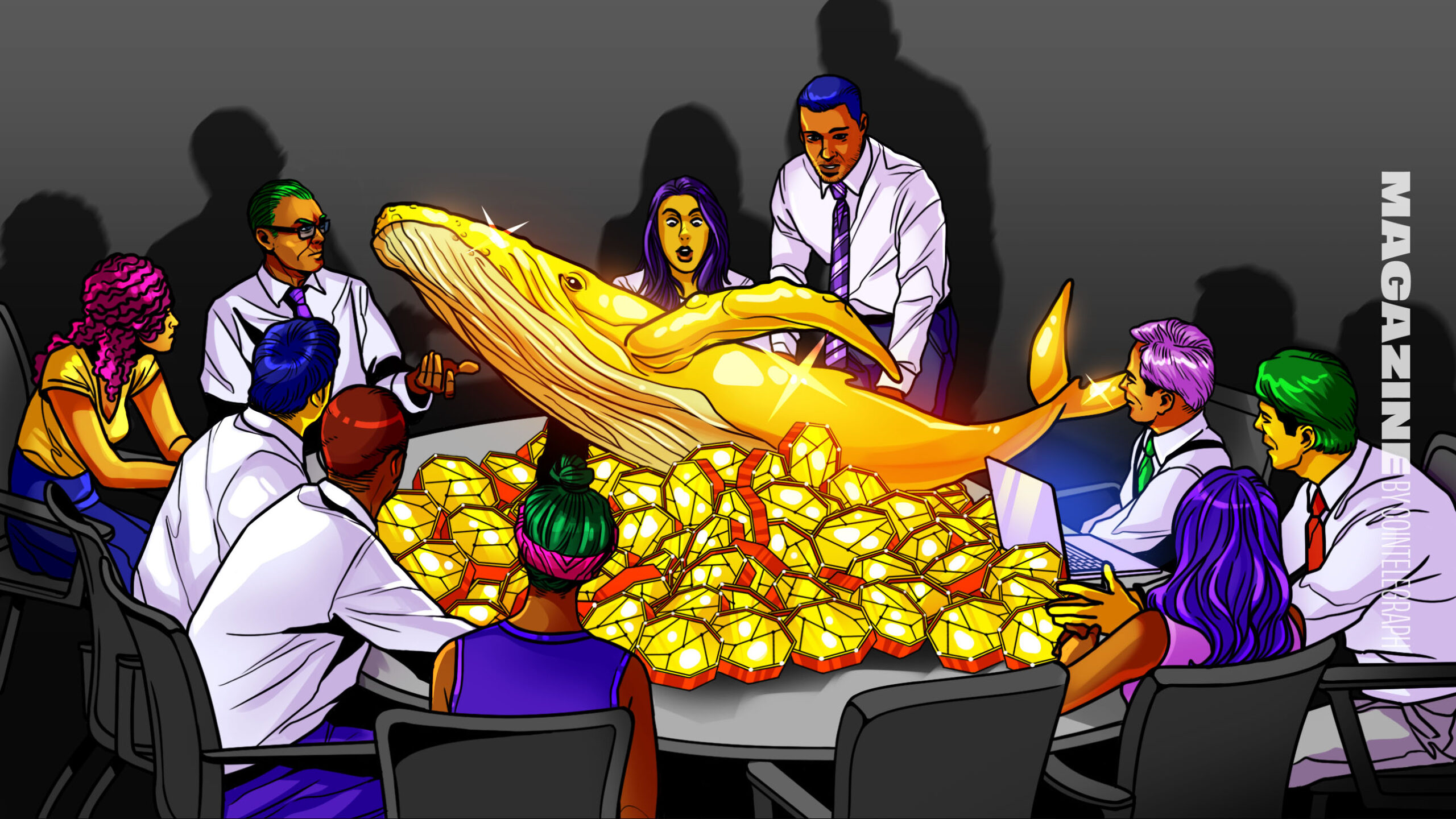
 CryptoCurrency1 day ago
CryptoCurrency1 day agoCrypto whales like Humpy are gaming DAO votes — but there are solutions
-

 CryptoCurrency1 day ago
CryptoCurrency1 day agoHelp! My parents are addicted to Pi Network crypto tapper
-

 CryptoCurrency1 day ago
CryptoCurrency1 day agoCrypto scammers orchestrate massive hack on X but barely made $8K
-

 Science & Environment1 day ago
Science & Environment1 day agoA single atom could drive a piston in a quantum engine
-

 Science & Environment1 day ago
Science & Environment1 day agoTiny magnet could help measure gravity on the quantum scale
-

 Science & Environment1 day ago
Science & Environment1 day agoWhy we need to invoke philosophy to judge bizarre concepts in science
-

 Science & Environment1 day ago
Science & Environment1 day agoJupiter’s stormy surface replicated in lab
-

 Science & Environment1 day ago
Science & Environment1 day agoFuture of fusion: How the UK’s JET reactor paved the way for ITER
-

 CryptoCurrency1 day ago
CryptoCurrency1 day agoSEC sues ‘fake’ crypto exchanges in first action on pig butchering scams
-

 CryptoCurrency1 day ago
CryptoCurrency1 day agoFed rate cut may be politically motivated, will increase inflation: Arthur Hayes
-
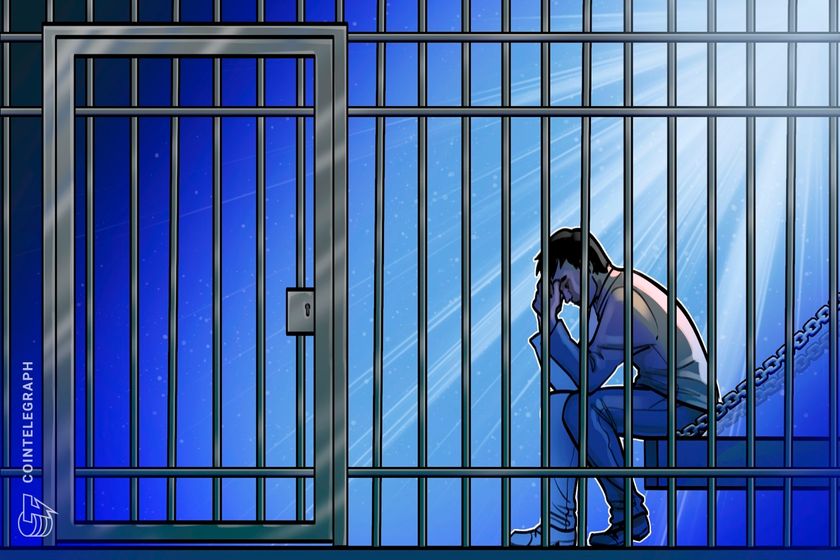
 CryptoCurrency1 day ago
CryptoCurrency1 day agoBinance CEO says task force is working ‘across the clock’ to free exec in Nigeria
-

 CryptoCurrency1 day ago
CryptoCurrency1 day agoElon Musk is worth 100K followers: Yat Siu, X Hall of Flame
-

 CryptoCurrency1 day ago
CryptoCurrency1 day agoBitcoin price hits $62.6K as Fed 'crisis' move sparks US stocks warning
-

 CryptoCurrency1 day ago
CryptoCurrency1 day agoBitcoin bull rally far from over, MetaMask partners with Mastercard, and more: Hodler’s Digest Aug 11 – 17
-

 CryptoCurrency1 day ago
CryptoCurrency1 day ago‘Silly’ to shade Ethereum, the ‘Microsoft of blockchains’ — Bitwise exec
-

 CryptoCurrency1 day ago
CryptoCurrency1 day agoETH falls 6% amid Trump assassination attempt, looming rate cuts, ‘FUD’ wave
-
Business1 day ago
Thames Water seeks extension on debt terms to avoid renationalisation
-
Politics1 day ago
The Guardian view on 10 Downing Street: Labour risks losing the plot | Editorial
-

 Politics1 day ago
Politics1 day agoI’m in control, says Keir Starmer after Sue Gray pay leaks
-
Politics1 day ago
‘Appalling’ rows over Sue Gray must stop, senior ministers say | Sue Gray


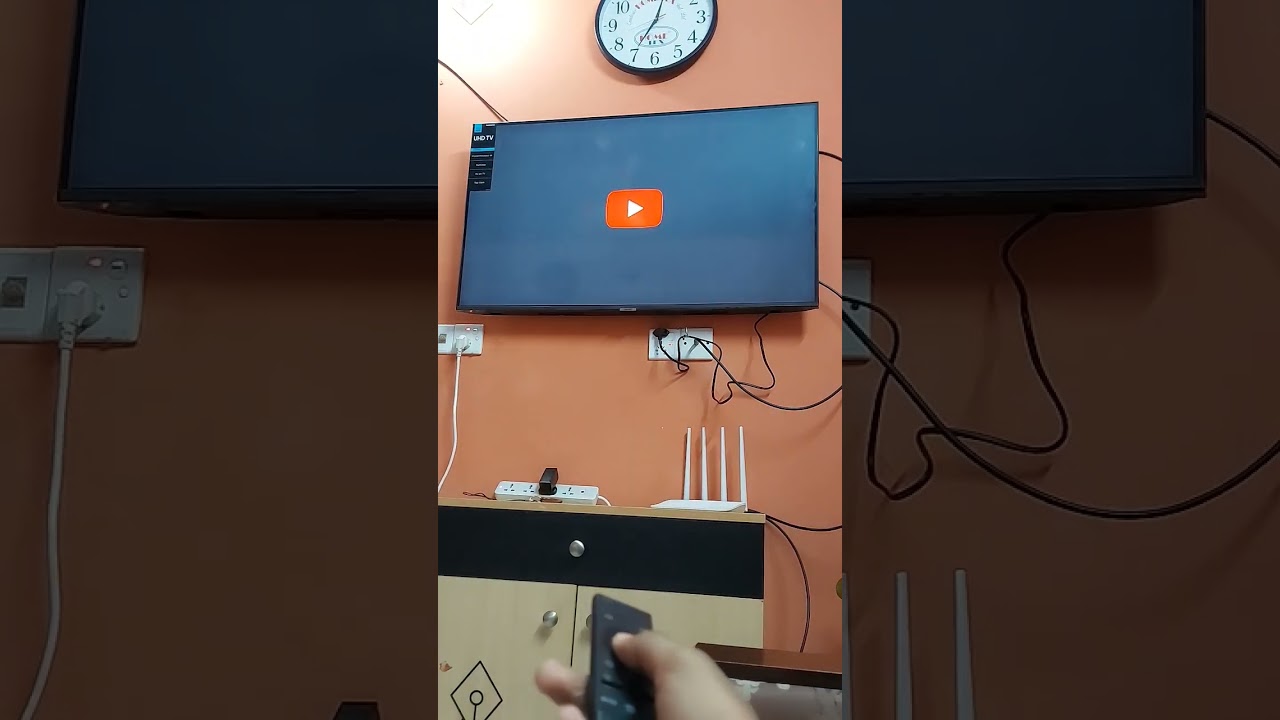
You must be logged in to post a comment Login